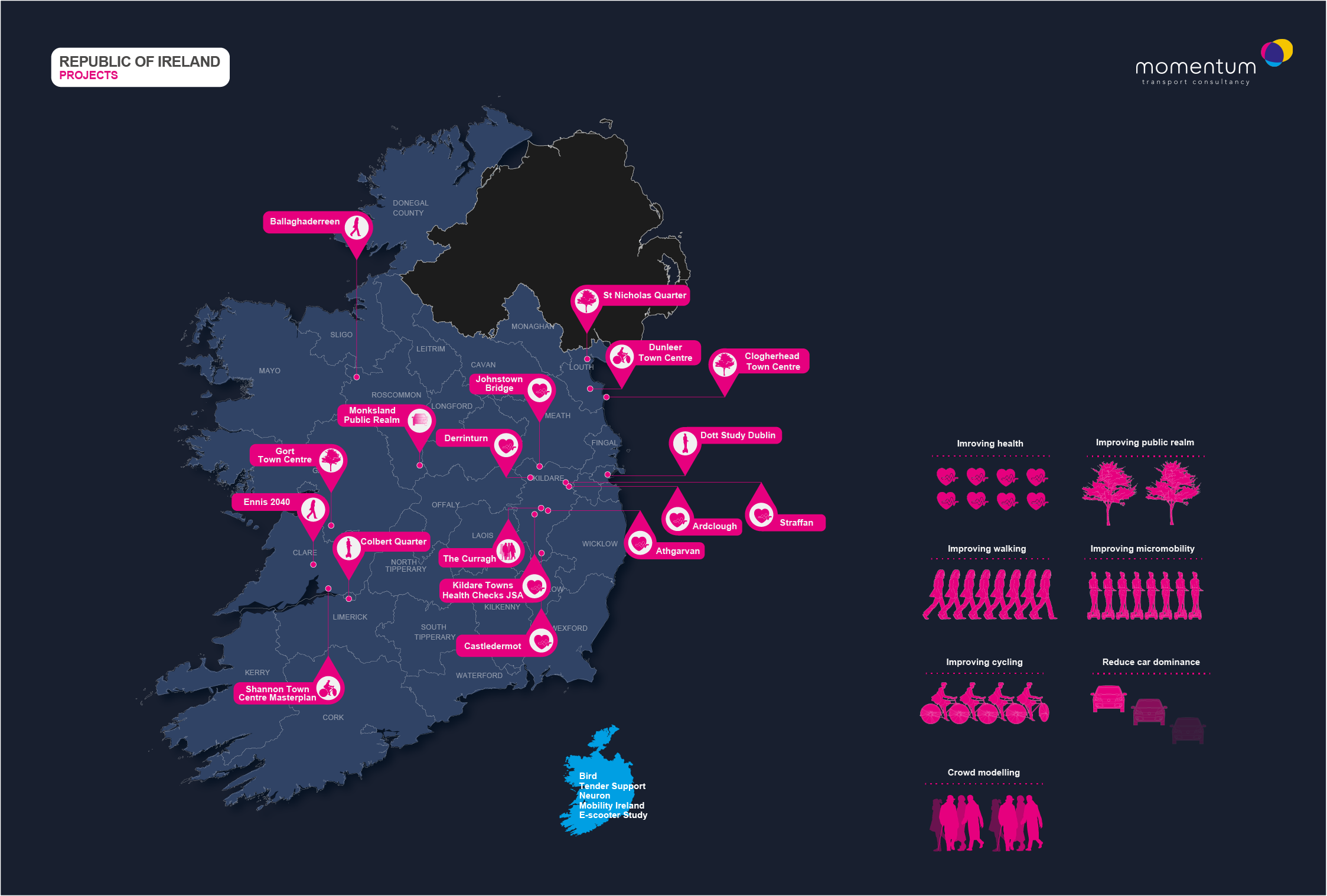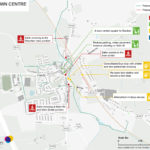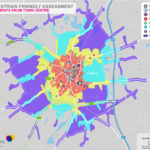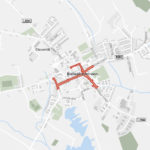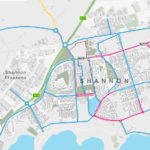The future looks bright for transport and mobility in Ireland, with a renewed focus on reducing car-dominance, encouraging active travel, and enhancing the public realm emerging over the last several years. Since joining Momentum in July, I have had the opportunity to work on a number of projects which strive to achieve these very goals, in the environment I call home. As Irish towns and villages capitalise on this desire for change, how can Momentum’s work in the country positively impact its wider project portfolio.
In 2022, the Department of Housing, Local Government and Heritage and the Department of Rural and Community Development jointly published Town Centre First, a new policy approach for Irish towns and villages in the wake of the COVID-19 pandemic. The long-term vision of the policy is to “create town centres that function as viable, vibrant and attractive locations for people to live, work and visit, while also functioning as the service, social, cultural and recreation hub for the local community.” This new policy approach has been complimented by the provision of funding to local authorities, in order to tackle the challenges of vacancy, car-dominance, and lack of vibrancy faced by many regional Irish urban centres. So what has Momentum’s experience been in this urban revival?
Creating spaces for people
Ireland’s towns and villages have lacked high quality public realm and pedestrian connections, instead prioritising ease of movement and parking for private vehicles. Momentum has rationalised how transport can contribute to creating a more human-centred urban experience. In Dunleer, together with BDP architects and Louth County Council, Momentum identified opportunities to make transport more sustainable, accessible, and safer for all users. Public consultation was at the core of this work, providing both local and national stakeholders the opportunity to shape their future transport and mobility experience. We made recommendations including improved pedestrian comfort and safer crossing points, which are highly transferrable across all of our typical work and highlight the value that public input can bring, across all developments, no matter their size or scale.
Bespoke transport planning
As Ireland continues to develop its catalogue of transport-related policy and guidance, Momentum has engaged in extensive bespoke and first principles transport analysis. This work involves the adaption of both Irish documents and the interpretation of non-Irish documents in a local context. Colbert Quarter in Limerick city provided the perfect opportunity to explore this work approach, with a concise set of transport inputs required for a complex and expansive site. Momentum developed a set of bespoke analysis tools, including a trip generation and transport specification, which contributed to a Delivery and Servicing Plan and the site masterplan. Flexibility in terms of work approach is something we should be striving to achieve in order to bring added value to the transport outputs produced.
Future-proofed transport solutions
A key aspect of Ireland’s urban renewal has been future-proofing transport infrastructure and non-vehicle mobility. This has given Momentum the opportunity to explore and propose novel and forward-thinking transport solutions. Ennis 2040 was one such project, with Clare County Council being presented with suitable locations in the town for Park & Stride locations, the aim of which are to allow town centre regeneration which is pedestrian-oriented. Solutions such as this provide an important reminder of the constant need for innovation and the potential to develop more revolutionary transport and mobility solutions.
All in all, Momentum’s experience in Ireland perfectly exemplifies our core value of placing people at the core of the transport and mobility work which we carry out, while also challenging us to continuously adapt and propose improvements as a company, and as individuals.
Click here to read more about Momentum’s work across Ireland.
